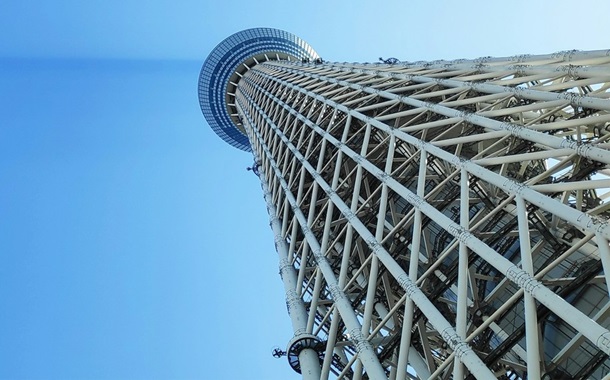The New Way of Tourism in Green Economy Style for Sustainable Community Development and Empowerment
Downloads
Doi:10.28991/HIJ-2024-05-04-015
Full Text:PDF
Downloads
Hsiao, W., Chiang, H., & Amornchaiyakij, N. (2024). The Study of Economic Growth and Tourism Industry in Thailand. European Journal of Development Studies, 4(4), 62-68. doi:10.24018/ejdevelop.2024.4.4.370.
Chinazzi, M., Davis, J. T., Ajelli, M., Gioannini, C., Litvinova, M., Merler, S., Pastore y Piontti, A., Mu, K., Rossi, L., Sun, K., Viboud, C., Xiong, X., Yu, H., Elizabeth Halloran, M., Longini, I. M., & Vespignani, A. (2020). The effect of travel restrictions on the spread of the 2019 novel coronavirus (COVID-19) outbreak. Science, 368(6489), 395–400. doi:10.1126/science.aba9757.
UNWTO. (2021). COVID-19 Related Travel Restrictions – A Global Review for Tourism. Madrid: Sustainable Development of Tourism Department. World Tourism Organization, Madrid, Spain.
Vithayaporn, S. (2021). COVID-19 Pandemic – A Testing Time for Tourism and Hospitality in Thailand. ABAC ODI Journal Vision. Action. Outcome, 8(1), 41–53.
Pongsakornrungsilp, S., Pongsakornrungsilp, P., Kumar, V., & Maswongssa, B. (2021). The art of survival: Tourism businesses in thailand recovering from covid-19 through brand management. Sustainability (Switzerland), 13(12), 1–17. doi:10.3390/su13126690.
UNWTO. (2021). Recommendations for the Transition to a Green Travel and Tourism Economy. Madrid: Sustainable Development of Tourism Department. World Tourism Organization, Madrid, Spain.
Boonyam, T. (2010). Green Tourism for the World Sustainability and the Guidelines for Entrepreneurs. Executive Journal, 31(2), 184–189.
Meler, M., & Ham, M. (2012). Green Marketing for Green Tourism. Tourism & Hospitality Management, 130–139.
Franch, M., Martini, U., Buffa, F., & Parisi, G. (2008). 4L tourism (landscape, leisure, learning and limit): Responding to new motivations and expectations of tourists to improve the competitiveness of Alpine destinations in a sustainable way. Tourism Review, 63(1), 4–14. doi:10.1108/16605370810861008.
TAT. (2012). 7 Greens: To the Transformation of the Millennium. Tourism Promotion Division, Tourism Authority of Thailand, Bangkok, Thailand. Available online: http://adventure.tourismthailand.org (accessed on November 2024).
TAT. (2021). 9 New Trends in the Future of Tourism. Tourism Promotion Division, Tourism Authority of Thailand, Bangkok, Thailand. Available online: https://api.tourismthailand.org/upload/live/content_article_file/20603-15378.pdf (accessed on November 2024).
Janwichian, K., Sutthirak, T., Khamkhow, A., Atitang, & Petcharat, W. (2021). Success Factors Sustainable Ecotourism Management of Kiriwong Village Community Nakhon Si Thammarat Province”. Rajapark Journal, 15(40), 264–273.
Chanead, J., Chamnongchob, A., & Maneerot, N. (2017). Guidelines for Sustainable Creative Tourism Development of Baan Rim Klong Community, Samut Songkhram Province. Business Review, 9(2), 21–38.
Modmonthin, S. (2019). Community-based Tourism: The Way to Sustainability. Bangkok: Basic Economy Section, Government Savings Bank Research Center. Tourism Authority of Thailand, Bangkok, Thailand.
Kaewon, S., Srirat, P., & Pantharak, S. Developing Sustainable Ways of Life Tourism of Pak Phanang River Basin, Pak Phanang District, Nakhon Si Thammarat Province. Office of the National Research Council & The Thailand Research Fund (TRF.
Chouykaew, T., & Jirojkul S. (2019). Pak Phanang's River Cultural Rote Development for Tourism Marketing Promotion, Pak Phanang District, Nakhon Si Thammarat Province. Journal of Information and Learning, Prince of Songkla University. 30(3), 80-97.
Nuurai, N., Suwanwichit, W., Kongrod, J., Leelayuttachai, O. & Khiawkra, A. (2018). Model of Tourism Management in the Area of Khlong Pa Phayom-Khlong Ta Nae Basin, Phatthalung Province. Office of the National Research Council & the Thailand Research Fund (TRF), Bangkok, Thailand.
Boonwong, A. & Sungkharat, U. (2019). Papai-Sangsuk: The Participation of Community to Create a Local Food Market, Khuan Khanun District, Phatthalung Province. Research and Innovation for Sustainable Development, Thaksin University National Academic Conference Proceedings. 743-751.
Suwanthip, N., Kaewsanit, T., Chamnian, K. (2017). Cultural Marketing Communication for Conserving Diverse Art and Culture of Khlongdan Floating Market with Three Canals and Two Cities of Songkhla Province and Nakhon Si Thammarat Province. Modern Management Journal. 15(2), 77-89.
Kumsri, R., Chuchuay, Phunphanasakul, J., Kraisanti K. & Suwannachart, J. (2018). "The Potential of Tourism Management and Eco-Tourism Style in Klong-Daen Community, Ranod District, Songkhla Province”, Hatyai National and International Conference Proceedings, 20 July 2018, 673-686.
Eco-Union (2016). the Mediterranean Information Office for Environment, Culture and Sustainable Development (MIO-ECSDE), and the Green Economy Coalition (GEC). Towards a Green Economy in the Mediterranean. Available online: http://www.medgreeneconomy.org, http://www.mio-ecsde.org, www.eco-union.eu, http://www.greeneconomycoalition.org. (accessed on November 2024).
Meei Lee, S., & Chris Honda, H. (2016). The Implementation of Green Tourism and Hospitality. Journal of Tourism & Hospitality, 5(4), 1–5. doi:10.4172/2167-0269.1000233.
Nawakanworakul, S., (2017). The Social Construction of Meaning, Pattern, and Strategies of Green Travel Business Operations of Khanom Fish and Tour. Journal of Nakhonratchasima College. 11(1), 10-25.
Michailidou, A. V., Vlachokostas, C., Achillas, C., Maleka, D., Moussiopoulos, N., & Feleki, E. (2016). Green Tourism Supply Chain Management based on life Cycle Impact Assessment. European Journal of Environmental Sciences, 6(1), 30–36. doi:10.14712/23361964.2016.6.
Morachat, C. (2003). A Study of Destination Attractiveness through Tourists' Perspectives: A Focus on Chiang Mai, Thailand. Available online: https://ro.ecu.edu.au/theses/1504 (accessed on November 2024).
Sutresna, I. B., Suyana, U. I. M., Saskara, I. A. N., & Wiwin, S. N. P. (2019). Community Based Tourism As Sustainable Tourism Support. Russian Journal of Agricultural and Socio-Economic Sciences, 94(10), 70–78. doi:10.18551/rjoas.2019-10.09.
Noll, D., Scott, A., Danelutti, C., Sampson, J., Galli, A., Mancini, S., Sinibaldi, I., Santarossa, L., Prvan, M., Lang, M. (2019). A Guide to Plan and Promote Ecotourism Activities and Measure their Impacts in Mediterranean Protected Areas Following the MEET Approach. DestiMED project, Interreg Med Programme, Marseille, France.
Al-Rousan, R. M., & Abuamoud, I. N. (2013). The Mediation of Tourists Satisfaction on the Relationship between Tourism Service Quality and Tourists Loyalty: Five Stars Hotel in Jordanian Environment. International Business Research, 6(8), 79–90. doi:10.5539/ibr.v6n8p79.
Argandoña, A. (2012). Corporate Social Responsibility in the Tourism Industry: Some Lessons from the Spanish Experience. SSRN Electronic Journal, WP-844, 1–29. doi:10.2139/ssrn.1593592.
Sartika, I., & Wargadinata, E. (2019). The Success Factors of Rural Community Based Tourism in Indonesia. NIDA Development Journal, 55(2), 293–301. doi:10.32528/pi.v0i0.2498.
Udomsilp, M. (2013). The Study Guideline for Promote Ecotourism and Development of Khlongkhon Community, Samutsongkhram Province. Journal of Information and Learning, 24(4), 135–149.
Tancharoen, S. (2017). Community Based Tourism Management and Sustainable Tourism Development of Bangkantaek Community in Samutsongkhram Province. Journal of International and Thai Tourism, 13(2), 32–41.
Maraphot, K., Wongsophanakul, R., Thammikanan, Khotrwongsa, T., Soomboon, T., Suphapha, K., & Kaenuan, J. (2018). The Development of Participation Community Based Tourism in Khlongkhuen Sub-district, Chachoengsao Province. Journal of Rajanagarindra. 15(34), 73-81.
Maneerot, N. (2017). Community-Based Tourism Management. Journal of International and Thai Tourism. 13(2), 25-46.
Chanchaochai, D. (2015). I don't have to compete with anyone because I'm number one anyway. DMG, Bangkok, Thailand.
Saowaluckchinda, K. (2012). Community Participation in Management of Tourist Attractions: A case Study of in Buri District, Sing Buri Province. Master of Independent Study in Business Administration, Majoring in General Administration. Faculty of Business Administration, Rajamangala University of Technology Thanyaburi, Pathumthani, Thailand.
Seyanont, A. (2009). The Prevention of Deterioration and Natural Resources and Environmental Conservation of Amphawa Floating Market. University of the Thai Chamber of Commerce Journal, 29(4), 163–172.
Pillai, R. (2011). Benefit of Tourism to Local Community: Result or Residue? Indian J. of Tourism & Hospitality Management, 2(2), 149–161.
Treerat, S.S. (2013). Community Development Towards Becoming a Green Tourism Destination Based on the Green Concept in Ban Pong Community. Maejo University, Chiang Mai, Thailand.
Yamane, T. (1973). Statistics: An Introductory Analysis. (2nd ed.). Haper and Row, New York, United States.
Krivart, K., Nuttarit, A. & Sookhom, A. (2020). "Problem-based Learning Process for Empowerment Promotion of Community in the Eastern”, NRRU Community Research Journal. 14(2), 84-94.
Krivart, K. (2020). Data Analysis in Public Administration. (3rd ed.). Success Publishing, Bangkok, Thailand.
Pintobtaeng, P. Sookhom, A. & Krivart, K. (2013). The Study of Community Democracy. Executive Committee of the Citizens Political Development Fund, Political Development Council, Bangkok, Thailand.
Tungseng, T., Madhyamapurush, W., & Sreesoompong, P. (2015). Knowledge Management Model for Community Based Tourism of Satun Community Based Tourism Network, Thailand 1. Mekong-Salween Civilization Studies Journal, 7(1), 163–184.
Luangchanduang, F., Kangwol, S., Nantasen, W. (2018). "The Potential of Role-model Communities in Sustainable and Creative Tourism”, Electronic Journal of Open and Distance Innovative Learning (e-JODIL). 8(2), 52-83.
Cottrell, S., Vaske, J., & Shen, F. (2011). Predictors of Sustainable Tourism in Holland and China. Ecotourism and Sustainable Tourism, 236–243. doi:10.1201/b12233-24.
Zappino, V. (2005). Caribbean Tourism and Development: An overview. European Centre for Development Policy Management, Maastricht, Netherlands.
Chodchuang, S., Pianroj, N., Ratcharak, N. & Kongrithi, W. (2018). Tourists' Attitudes toward 7 Greens Affecting Tourism Image Perception on Samui Island. Journal BEC of Naresuan University. 13(1), 124-136.
Thongma, W. (2013). The Seven Greens Tourism Concept in Maetaeng Elephant Park, Chiang Mai Province, Thailand. The 2013 International Conference on Tourism Industry and Education. 13-34.
Muangasame, K., & McKercher, B. (2015). The challenge of implementing sustainable tourism policy: a 360-degree assessment of Thailand's "7 Greens sustainable tourism policy.” Journal of Sustainable Tourism, 23(4), 497–516. doi:10.1080/09669582.2014.978789.
Virojtrairatt, V. (2010). Community Pre-empowering for Tourism: Sustainable Tourism Management Guideline Amphoe Mae Chaem, Chiang Mai, Thailand. Independent Study for the Degree Master of Arts, Program of Architectural Heritage Management and Tourism (International Program). Graduate School, Silpakorn University, Bangkok, Thailand.
Noosut, K. & Duangsaeng, V. (2019). Development of Community-based Tourism Based on the Grassroots Economy Concept. Local Administration Journal. 12(3), 481-496.
Kallayanamitra, C. & Buddhawongsa, P. (2014). Sustainability of Community-based Tourism: Comparison of Mae Kam Pong Village in Chiang Mai Province and Ta Pa Pao Village in Lamphun Province. Journal of Economics, 18(1), 85-111.
Chen, W. & Wang, W. (2009). A Study on the Strategies of the Sustainable Development of China's Ecotourism. International Journal of Business and Management. 2(5), 1-6.
Ezebilo E.E., Mattsson L. & Afolami A. C. (2010). Economic Value of Ecotourism to Local Communities in Nigerian Rainforest Zone. Journal of Sustainable Development. 3(1), 1-15.
Gavrilovic, Z., Maksimovic, M. (2018). Green Innovations in the Tourism Sector. Strategic Management, 23(1), 36-42.
Kampetch, P. & Jitpakdee, R. (2019). The Potential for Key Success of Community-Based Tourism Sustainability: Case Study Baan Rim Klong Homestay, Samut Songkram, Thailand. ABAC Journal. 39(4), 111-122.
Ministry of Tourism and Sports. (2017). Strategy for Promotion Green Tourism. Strategy and Planning Division, Ministry of Tourism and Sports, Bangkok, Thailand.
Dong, H. (2010). Study on Sustainable Development of Ecotourism in the Northern Piedmont in the Qinling Mountain. Journal of Sustainable Development. 3(1), 1-4.
OECD. (2013). Green Innovation in Tourism Services. OECD Tourism Papers, No. 2013/01. OECD Publishing, Paris, France. doi:10.1787/5k4bxkt1cjd2-en.
UNEP. (2012). Tourism in the Green Economy Background Report. The World Tourism Organization and the United Nations Environment Programme. United Nations Environment Programme, Madrid, Spain.
Lasongyang, W., & Pathak, S. (2024). Labor Law Implications on Migrant Workers in Thailand and Cambodia. Journal of Law and Sustainable Development. 12(2), e3046. doi:10.55908/sdgs.v12i2.3046.
- This work (including HTML and PDF Files) is licensed under a Creative Commons Attribution 4.0 International License.





















